Background
Susan Neiman was born on March 27, 1955, in Atlanta, Georgia, United States, in a Jewish family.

2015
Susan Neiman in Berlin in 2015. Photo by Kai Müller.
2015
Susan Neiman at a conference on February 14, 2015, in Austria.
2017
Susan Neiman at Globart Academy 2017.
Susan Neiman
Harvard University, Cambridge, Massachusetts 02138, United States
Harvard University where Susan Neiman received her Bachelor of Arts, Master of Arts and Doctor of Philosophy degrees.
Kaiserswerther Str. 16-18, 14195 Berlin, Germany
The Free University of Berlin where Susan Neiman studied.
Susan Neiman on channel 3sat.
Susan Neiman at the interview with David Deißner.
Susan Neiman
Susan Neiman with Eva Illouz.
Susan Neiman at Forum Bellevue with the President of Germany Frank-Walter Steinmeier and other forum participants. Photo by Thomas Kunsch.
Susan Neiman with Heinz Bude.
Susan Neiman with Kai-Michael Hingst und Sven Murmann.
Susan Neiman at Dr.-Karl-Renner-Institut.
Susan Neiman
Susan Neiman
Susan Neiman with Hans Leyendecker and Frank Walter Steinmeier.
Susan Neiman with Michael Rosecker at Dr.-Karl-Renner-Institut. Photo by Julia Wertheimer.
Susan Neiman



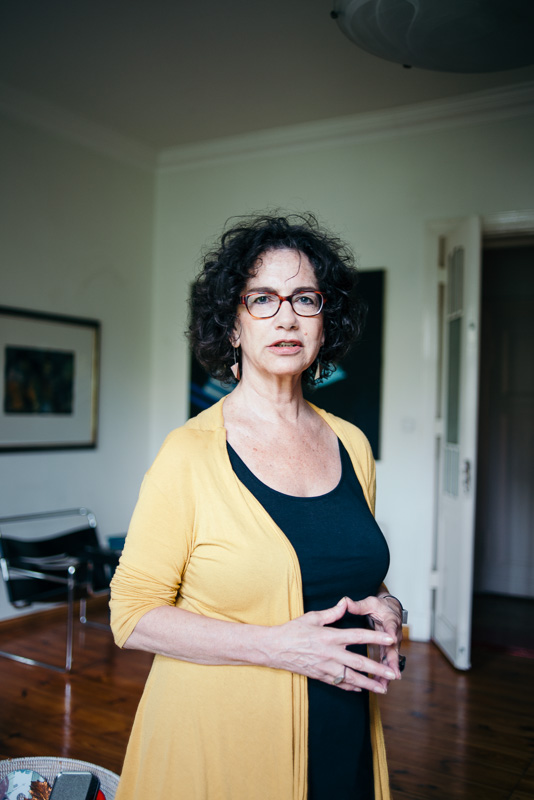














(Berlin - "East" and "West," day and of course night - thr...)
Berlin - "East" and "West," day and of course night - through the 1980s before the Wall came down. In the eyes of a U.S. philosophy student. And Jewish, which makes for moments awkward, poignant, resonant, unspoken, crass, funny, and always lurking. This entertaining memoir, strongly colored by the author's inquiring mind, bohemian inclinations, and Jewish background, recounts her six-year stay in the formerly divided city.
http://www.amazon.com/gp/product/1610270312/?tag=2022091-20
1992
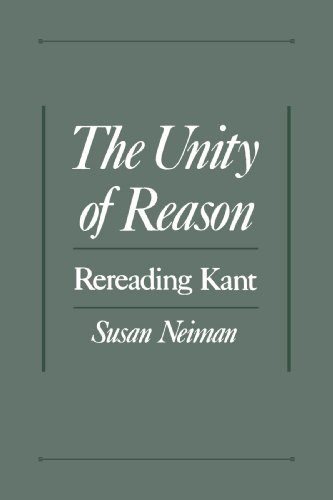
(The Unity of Reason is the first major study of Kant's ac...)
The Unity of Reason is the first major study of Kant's account of reason. It argues that Kant's wide-ranging interests and goals can only be understood by redirecting attention from epistemological questions of his work to those concerning the nature of reason. In separate chapters discussing the role of reason in science, morality, religion, and philosophy, Neiman explores Kant's distinctions between reason and knowledge, and his difficult account of the regulative principles of reason. Through an examination of these principles in Kant's major and minor writings, The Unity of Reason provides a fundamentally new perspective on Kant's entire work.
http://www.amazon.com/gp/product/0195113888/?tag=2022091-20
1994
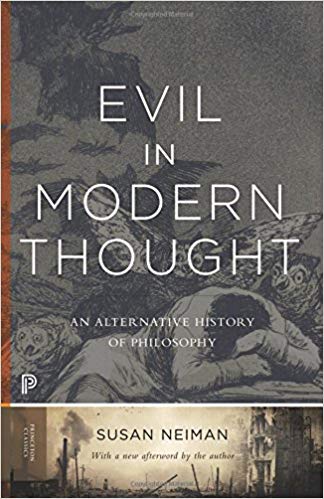
(Evil threatens human reason, for it challenges our hope t...)
Evil threatens human reason, for it challenges our hope that the world makes sense. For eighteenth-century Europeans, the Lisbon earthquake was manifest evil. Examining our understanding of evil from the Inquisition to contemporary terrorism, Susan Neiman explores who we have become in the three centuries that separate us from the early Enlightenment. In the process, she rewrites the history of modern thought and points philosophy back to the questions that originally animated it.
https://www.amazon.com/gp/product/0691168504/?tag=2022091-20
2002
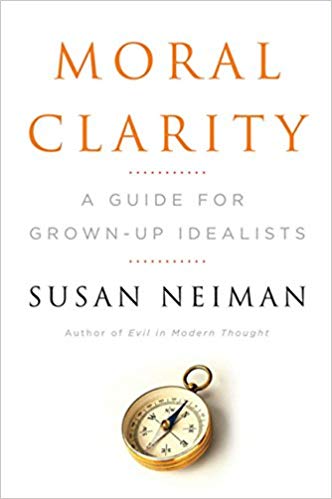
(Susan Neiman is a moral philosopher committed to making t...)
Susan Neiman is a moral philosopher committed to making the tools of her trade relevant to real life. In Moral Clarity, she shows how resurrecting a moral vocabulary - good and evil, heroism and nobility - can steer us clear of the dogmas of the right and the helpless pragmatism of the left. In search of a framework for forming clear opinions and taking responsible action on today’s urgent political and social questions, Neiman reaches back to the eighteenth century, retrieving a set of virtues - happiness, reason, reverence, and hope - that were held high by every Enlightenment thinker.
https://www.amazon.com/gp/product/0151011974/?tag=2022091-20
2008
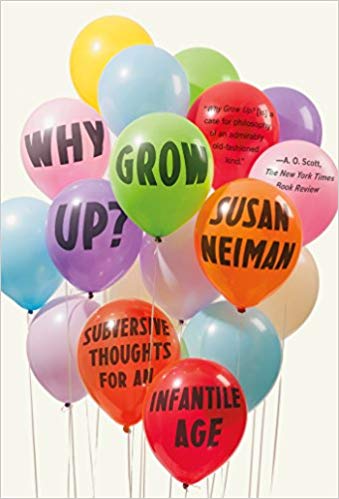
(Our culture is obsessed with youth - and why not? What's ...)
Our culture is obsessed with youth - and why not? What's the appeal of growing old, of gaining responsibilities and giving up on dreams, of steadily trading possibility for experience? The philosopher Susan Neiman argues that the absence of appealing models of maturity is not an accident: by describing life as a downhill process, we prepare young people to expect - and demand - very little from it. In Why Grow Up? she challenges our culture of permanent adolescence, turning to thinkers including Kant, Rousseau, and Arendt to find a model of maturity that is not a matter of resignation.
https://www.amazon.com/gp/product/0374536147/?tag=2022091-20
2014
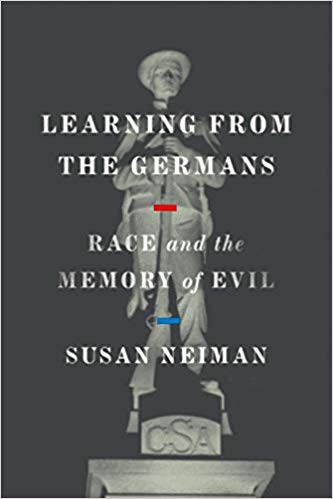
(As an increasingly polarized America fights over the lega...)
As an increasingly polarized America fights over the legacy of racism, Susan Neiman, author of the contemporary philosophical classic Evil in Modern Thought, asks what we can learn from the Germans about confronting the evils of the past In the wake of white nationalist attacks, the ongoing debate over reparations, and the controversy surrounding Confederate monuments and the contested memories they evoke, Susan Neiman’s Learning from the Germans delivers an urgently needed perspective on how a country can come to terms with its historical wrongdoings.
https://www.amazon.com/Learning-Germans-Race-Memory-Evil/dp/0374184461/?tag=2022091-20
2019
Susan Neiman was born on March 27, 1955, in Atlanta, Georgia, United States, in a Jewish family.
Susan Neiman dropped out of high school at the age of fourteen to join the anti-Vietnam War movement. Her interest in Simone de Beauvoir's and Jean-Paul Sartre's books led her to study philosophy. In 1977 she received a Bachelor of Arts degree at Harvard University. There she also received a Master of Arts degree in 1981 and a Doctor of Philosophy degree in 1986 under the direction of John Rawls and Stanley Cavell. During graduate school, she also spent several years of study at the Free University of Berlin.
Susan Neiman was an assistant and an associate professor at Yale University, New Haven, from 1989 till 1996, then five years as associate professor at Tel Aviv University. Her professional domain includes morality, history of philosophy, political philosophy, and philosophy of religion. In 2000 she became the Director of Einstein Forum in Potsdam.
In 1992 she published a memoir about her life as a Jewish in Berlin titled Slow Fire: Jewish Notes from Berlin. Her other books include The Unity of Reason: Rereading Kant (1994), Evil in Modern Thought: An Alternative History of Philosophy (2002), Fremde sehen anders. Zur Lage der Bundesrepublik (2005), Moral Clarity: A Guide for Grownup Idealists (2008), Why Grow Up? (2014), Learning from the Germans (2019). Her new work Heroes ReViewed will be published in 2022.
Neiman's shorter pieces have appeared in The New York Times, The Boston Globe, The Globe and Mail, The Guardian, and Dissent. In Germany, she has written for Die Zeit, Frankfurter Allgemeine Zeitung, and Freitag, among other publications. In 2018 she was elected to the American Philosophical Society.
Susan Neiman's books are translated into twelve languages. She has been invited to give the Gifford Lectures and the Tanner Lectures (twice). She has also received the August Bebel Prize, the Sander Prize, honorary doctorates at two universities, the Lucius D. Clay Medaille, International Spinoza Prize, Ribicoff Prize for Teaching Excellence in the Humanities from Yale University in 1991, Carrier Dissertation Prize in 1987 and Bowen Prize in 1980 from Harvard University.
(As an increasingly polarized America fights over the lega...)
2019(Our culture is obsessed with youth - and why not? What's ...)
2014(Susan Neiman is a moral philosopher committed to making t...)
2008(Berlin - "East" and "West," day and of course night - thr...)
1992(Evil threatens human reason, for it challenges our hope t...)
2002(The Unity of Reason is the first major study of Kant's ac...)
1994After George W Bush was re-elected in 2004, Susan Neiman was enraged that the most immoral regime in US history was claiming moral clarity, when everything it did was a travesty of both words: neither moral nor clear. The hope is simply to reclaim moral concepts for progressive forces. She thinks President Obama, given an almost insoluble set of problems, has been doing a reasonable job.
She certainly thinks Donald Trump is evil. Trump's behavior in the White House is not normal to her mind. He seems to be one of those rare human beings who have no sense of morality whatsoever. In her opinion, Trump seems driven by the urge to dominate and lacks the ability to grasp that others might be moved by different goals. She criticizes him that Trump has made open and violent racism acceptable. She fears that he has made it acceptable not to have values at all - except grasping for power and money. She worries about the effect his example will have on young people who are already uncertain about whether or not any value but power and money is real.
Susan Neiman thinks that the main problem with American exceptionalism is that Americans confuse the idea of America with the realization of it. America was founded on exceptional ideals; most other countries developed because some collection of tribes found themselves in one place and worked out some political structures for better and worse. It was exceptional to find a country on a set of ideals, and people all over the world saw hope in that uniqueness. Now, she trusts most people are aware, in the meantime, that the genocide of Native Americans - which, by the way, was a conscious model for Nazi policy in Eastern Europe - and the centrality of slavery to the American economy both provided a terrible contradiction to those ideals from the time the nation was founded.
Quotations:
"Progressives never know what to do in power."
"Like many others, I came to philosophy to study matters of life and death and was taught that professionalization required forgetting them. The more I learned, the more I grew convinced of the opposite: the history of philosophy was indeed animated by the questions that drew us there."
"As long as your ideas of what's possible are limited by what's actual, no other idea has a chance."
"One great function of the arts is to keep ideals alive in a culture that does not yet realize them."
"Growing up means realizing that no time of one's life is the best one, and resolving to savor every second of joy within reach. You know each will pass, and you no longer experience that as a betrayal."
"If life is a gift, then the more you partake in it, the more you show thanks."
"Ordinary goodness is fraught with veins of vanity and self-interest and above all with pleasure--because goodness makes you feel more alive."
"Vitality is not the denial of mortality, but the grown-up way of facing it."
"The problem of evil is the guiding force of modern thought."
Susan Neiman was a Sheldon fellow in 1982, a Fulbright fellow in 1983, a Henrich Heine fellow in 1984, an American Council of Learned Societies fellow in 1999, a Rockefeller Foundation Center at Bellagio fellow in 2000, and is a senior fellow Shalom Hartman Institute since 1996. She is a member of the Berlin-Brandenburg Academy of Sciences and Humanities and Phi Beta Kappa.
Susan married Felix de Mendelssohn after the death of her first husband. She has three children: Benjamin Wagner, Shirah Wagner, Leila Wagner.

Felix de Mendelssohn lived and worked as a psychoanalyst and group analyst in Vienna and Berlin. The focus of his work was in his practice as a teaching, individual and group psychoanalyst and in teaching at institutions. On October 7, 2016, he died after an illness.
